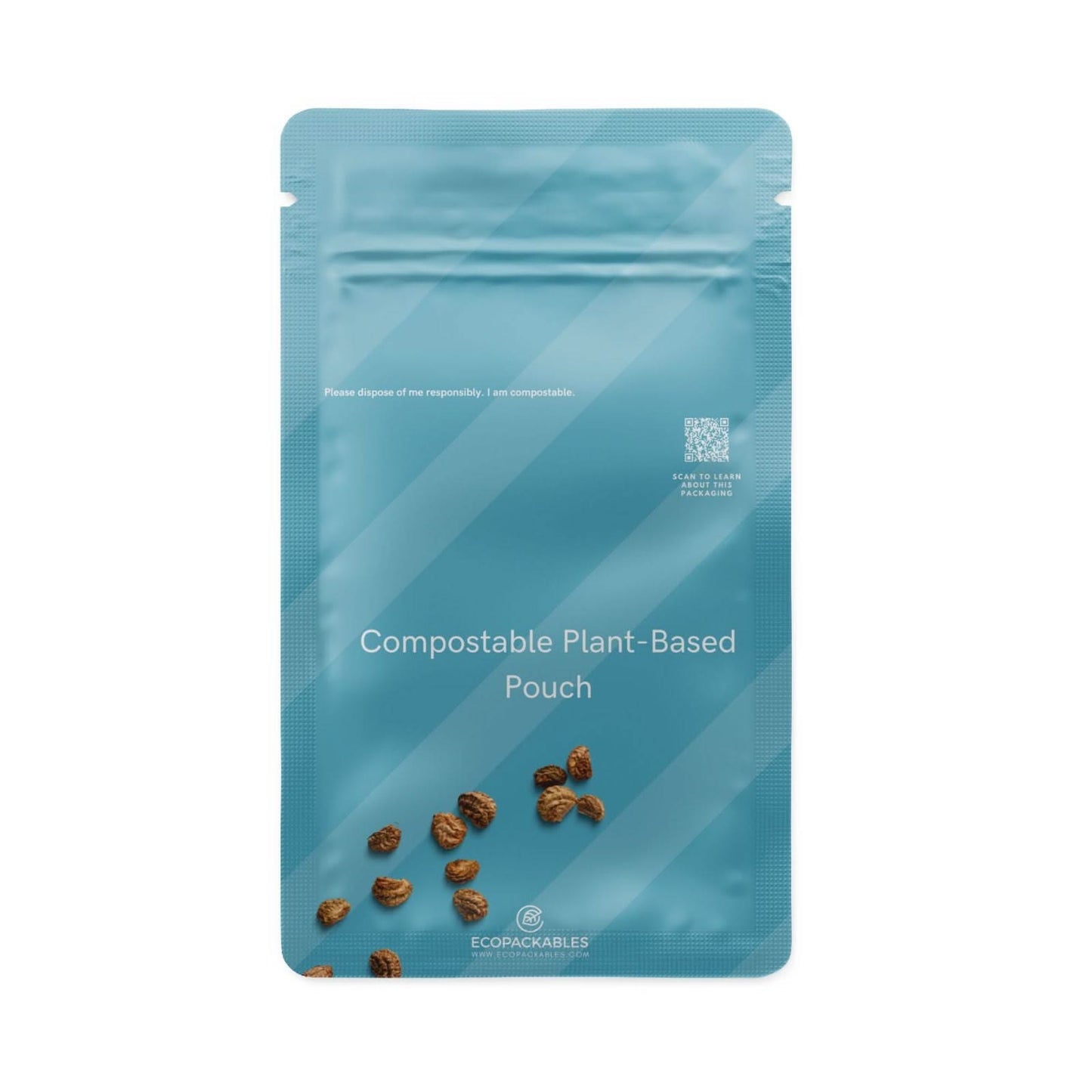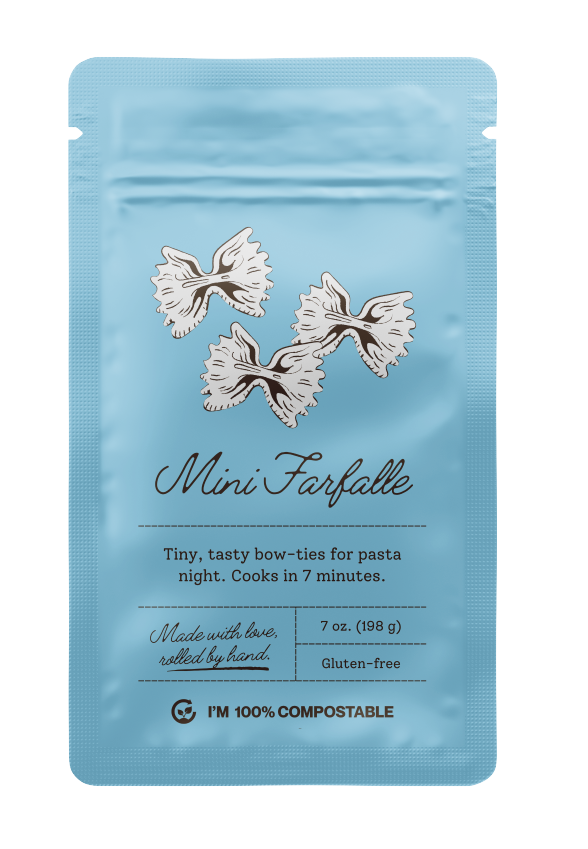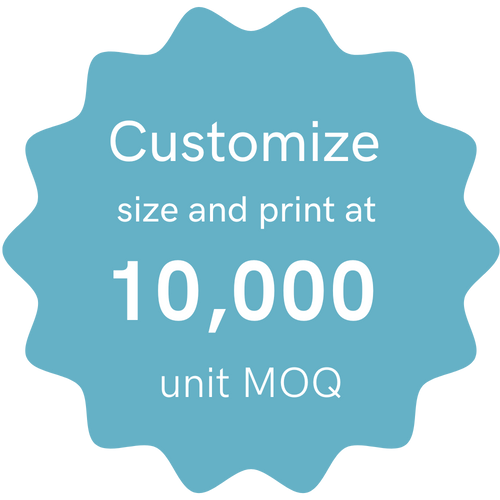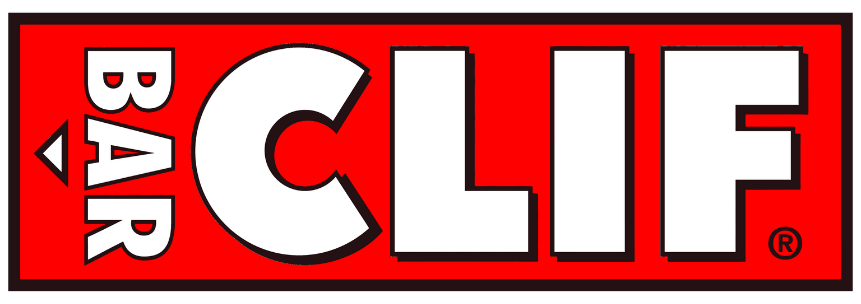Our compostable flat sachets are made by sealing three sides and leaving a side left for customers to fill and seal. They are the ideal solution for small-volume packaging requirements. Available at an MOQ of 5,000 units, we have a number of different options, each having different moisture barriers. Sizing, print, and features can be fully customized.
Add ons:
- Tear Notch
- Hang Hole for Retail
- Laser/Perforation cut
- Hang Hole for Retail
Finish:
- Gloss / Matte / Spot Matte
Experience the versatility and sustainability of flat sachet pouches. These sleek pouches are designed for convenience and practicality, making them perfect for various use cases. Whether you're packaging single-serve coffee, herbal teas, spices, or health supplements, flat sachet pouches ensure freshness and portion control with their resealable design. For eco-conscious businesses, flat sachet pouches are an excellent choice, as they require minimal material compared to bulky packaging, reducing plastic waste. Their lightweight nature makes them ideal for shipping efficiency, while their customizable branding enhances product visibility on shelves.
Discover our range of compostable pouches, thoughtfully designed with sustainability in mind. Our selection includes a variety of laminates, with some being certified as both Home and Industrial Compost Compliant. We take pride in offering you the best options based on your specific needs. Depending on the contents you wish to pack, we will recommend the most suitable material structure and barrier level (Low/Medium/High) to ensure optimal compostability for your product. Embrace eco-friendly packaging with our compostable pouches and contribute to a greener future.
Inquire below to get started!


We Work With
Materials

EcoPackables D41 Film
Transparent film made from a unique blend of Cornstarch and PBAT, a bio-based polymer. Both sides are sealable and printable, with thickness ranging from 20-100μm. Used as single layer in laminates.

Recycled Kraft Paper
FSC-Certified Post-Consumer Recycled Paper that is printed on with non-toxic inks. Heavily customizable and avaialbe in 90-330gsm.

EcoPackables D42 Film
Semi-Opaque Compostable Film made from a unique blend of Cornstarch and PBAT, a bio-based polymer. Both sides are sealable and printable, with thickness ranging from 30-110μm. Colors can be customized.













